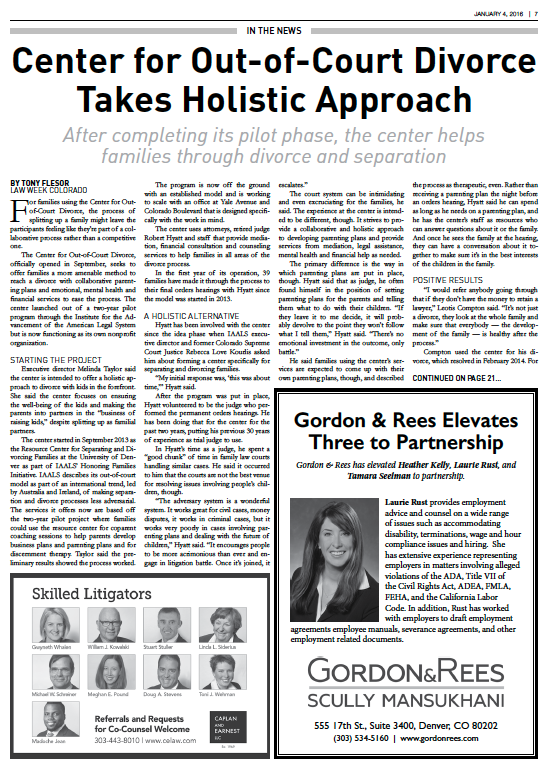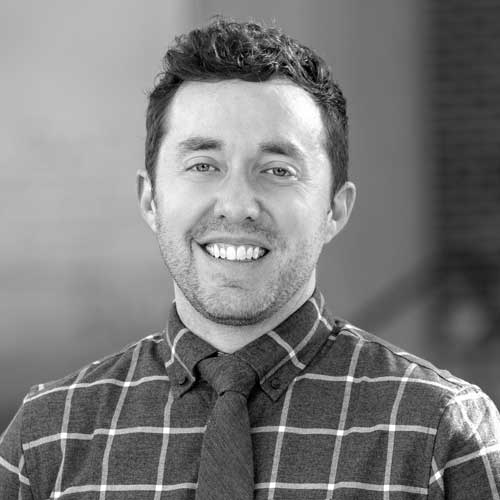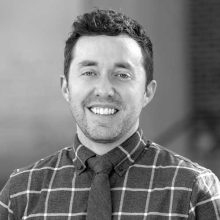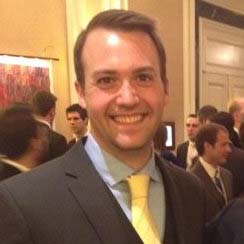The Center for Out-of-Court Divorce Grows into its New Home in Denver
 In January, Law Week Colorado covered Denver’s new Center for Out-of-Court Divorce. The Center, based on IAALS’ recommended model for child- and family-centric divorce and separation services, grew out of our pilot project at the University of Denver, known as the Resource Center for Separating and Divorcing Families. Now a standalone nonprofit, the Center opened its doors in September 2015 and “seeks to offer families a more amenable method to reach a divorce with collaborative parenting plans and emotional, mental health and financial services to ease the process.”
In January, Law Week Colorado covered Denver’s new Center for Out-of-Court Divorce. The Center, based on IAALS’ recommended model for child- and family-centric divorce and separation services, grew out of our pilot project at the University of Denver, known as the Resource Center for Separating and Divorcing Families. Now a standalone nonprofit, the Center opened its doors in September 2015 and “seeks to offer families a more amenable method to reach a divorce with collaborative parenting plans and emotional, mental health and financial services to ease the process.”
During the first year of testing the Center’s model at DU, from 2013 to 2014, 39 families successfully made their way through the process. One of those clients was Leotis Compton; he and his now ex-wife took part in the counseling and group services offered by the Center, along with their children.
“It’s not just a divorce, they look at the whole family and make sure that everybody—the development of the family—is healthy after the process.”
The process in large part hinges on retired judge Robert Hyatt, who volunteered to perform the permanent orders hearings that finalize the legal process for families, all done onsite at the Center so families never have to step foot in a courtroom. Having served on many family court dockets during his tenure on the bench, Judge Hyatt understands the value the Center brings to families:
“The adversary system is a wonderful system. It works great for civil cases, money disputes, it works in criminal cases, but it works very poorly in cases involving parenting plans and dealing with the future of children. It encourages people to be more acrimonious than ever and engage in litigation battle.”
Judge Hyatt considers the development of parenting plans as one of the greatest benefits of the Center. The Center’s process allows for more collaboration than the adversarial process, bringing parents together to work toward solutions that are truly best for the children. From Judge Hyatt’s perspective:
“The response from parents that I’ve dealt with has just been overwhelmingly positive. I know that IAALS and the center and everybody involved is devoted to making this the kind of product that really does serve the children and making changes in it and making sure the research tells us things we can do better. That’s always been the goal.”




